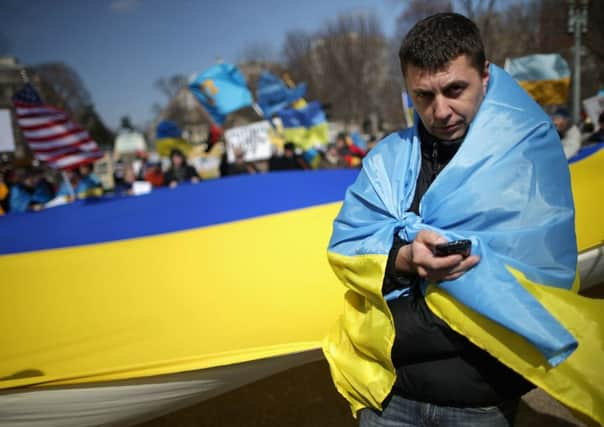Leaders: Crimea referendum | Met apology


Yesterday, Crimean MPs requested Moscow to allow the region to become part of the Russian Federation. If granted, the MPs say they will allow Crimean citizens to give their view in a referendum on 16 March.
The proposed referendum is striking in several respects. First, it is being held with astonishing speed. Second, it has the capacity to realign the geo-political map of the area and fundamentally alter the composition of Ukraine. And third, it is planned to comprise two questions: “Are you in favour of reuniting Crimea with Russia as a subject of the Russian Federation?” and “Are you in favour of retaining the status of Crimea as part of Ukraine?”
Advertisement
Hide AdAdvertisement
Hide AdFor those wearying of lengthy referendum battles nearer home, this combination of swiftness and urgent concentration of minds may have strong appeal. The currency issue has already been settled, apparently – it will be the Russian rouble. And broadcasting stations are now, with equal suddenness, relaying Russian TV programmes.
Unfortunately, while it appears to offer an irrefutable way to proceed, it is subject to very considerable doubts both as to its legality and its mooted popular resolution. Where would the boundaries of southern Ukraine be drawn for this exercise? Which international body would police the arrangements to ensure that the vote was properly held and its results an accurate reflection of the way people voted?
Not only has the Crimean parliament no legal basis on which to call such a referendum, but the circumstances under which the current Crimean leaders were sworn in – the vote was taken with remarkable speed and the parliament was surrounded by armed pro-Russian troops – also begs searching questions as to how fair and scrupulous the referendum arrangements are likely to be. Indeed, the way in which it has been presented and framed – requiring the approval of the leader of a foreign state – suggests that this would be a vote taken under duress.
There are also major uncertainties as to how the interests of Crimea’s minorities would be protected, even if Russia agrees to this proposal. As if all this was not enough, there is also the question of its legitimacy in international eyes. It is hard to see that many governments – other than satellites of Russia – would accord diplomatic recognition.
So, while a referendum might appear to offer a way to de-escalate the crisis, there is every likelihood it will have the opposite effect. A more measured way to proceed would surely be to allow time for negotiations to take place on a more considered plebiscite to be held after the rights of the Crimea’s minorities are safeguarded and when the powers and responsibilities of a newly configured Crimea have been more clearly set out.
Apology from Met is not enough
A 20-YEAR case unresolved. Major questions of police procedure. Suspicion of corrupt police procedure. And now talk of yet another inquiry. Little wonder that the patience of parliament and the public has been stretched to the utmost by the way that the Metropolitan Police has handled the Stephen Lawrence murder investigation and subsequent extensive inquiries into police conduct.
The latest report into the Met – this time by Mark Ellison QC – finds that certain actions by undercover officers, including refusal to reveal their true identities, spying on the Lawrence family and suspicion of corrupt behaviour, raises further questions about a miscarriage of justice.
It is astonishing that such revelations are still coming to light concerning the way the police handled the stabbing to death of Stephen Lawrence in an unprovoked attack by white youths. An earlier inquiry accused the police of institutional racism and found a number of failings in how they had investigated the murder.
Advertisement
Hide AdAdvertisement
Hide AdNow evidence of more misconduct has been unearthed. Not least of these is the clandestine way in which the police went about their business and the loss of critical papers relating to earlier enquiries. That the latest inquiry brought shock and disquiet from the Prime Minister and Home Secretary yesterday speaks volumes on the seriousness of the Met’s failings.
All this has so damaged the credibility of the Metropolitan Police and public trust in its personnel and activities as to require nothing less than root and branch reform. Pro forma apologies and assurances that “lessons have been learnt” will no longer suffice from an institution entrusted with public safety and the maintenance of law and order and which has so signally failed to live up to these duties.